Global Food Crisis—CRS has identified 25 priority countries that are affected by high levels of acute food insecurity and malnutrition due to combinations of these drivers, which are expected to continue through 2024. Areas of urgent concern include East Africa and the Sahel, as well as Central America, Southern Africa and, more recently, Gaza.
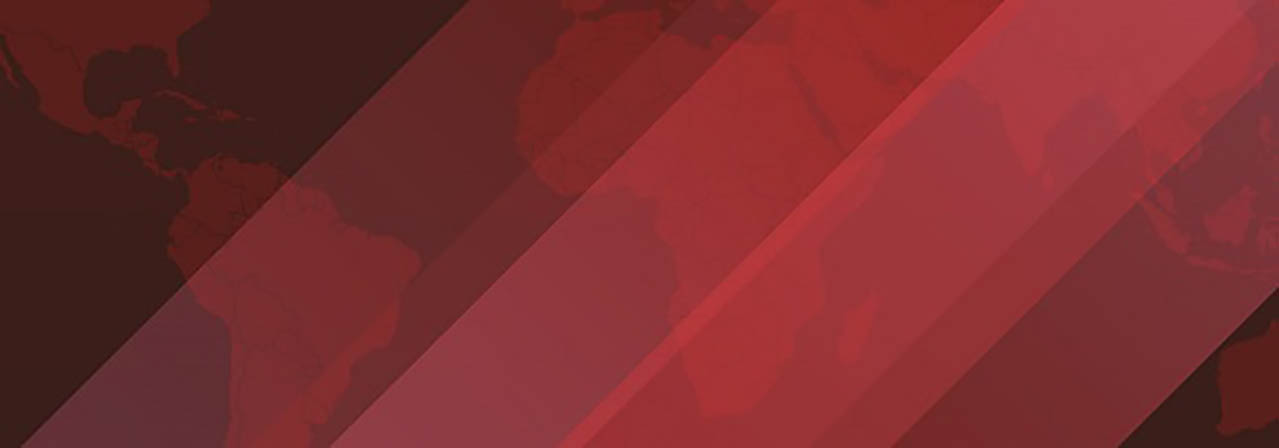

Global Emergency Update May 2023
Global Emergency Update: Focus on Partnership
At a time when a range of humanitarian crises are affecting so many across the world, the role of local partners couldn’t be more profound. During emergencies, local and national organizations are often the first responders to their communities. And they are also often directly affected by these emergencies. In this update, we provide a snapshot of some of the critical work underway by Catholic Relief Services and our partners to shine a light on the many milestones in relief and recovery.
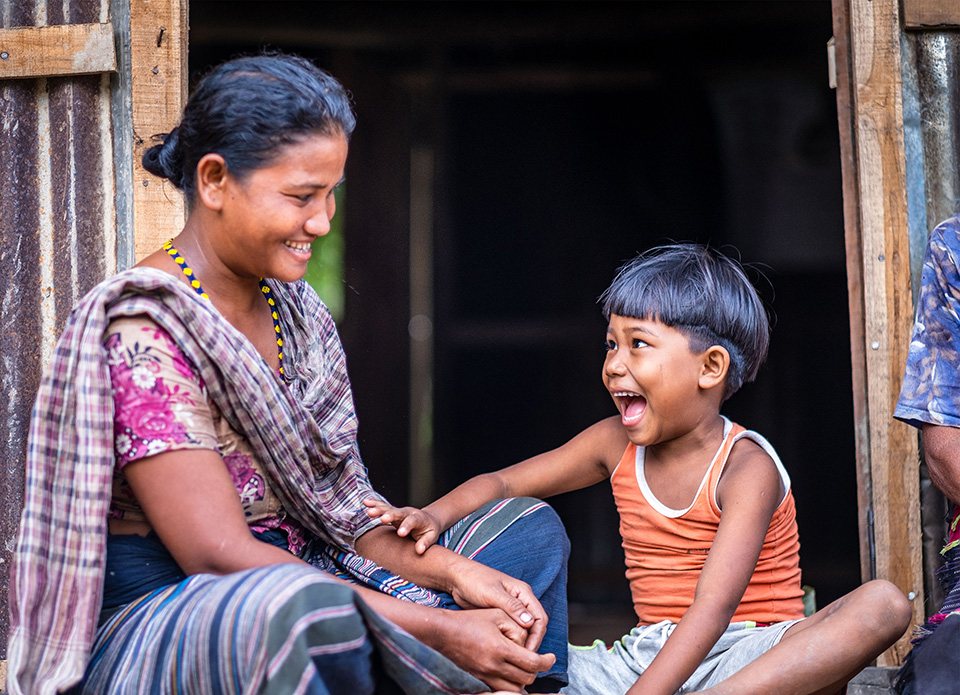
In Bangladesh, Normaiti Tripura, left, and her son are among the families benefiting from CRS and Caritas Bangladesh support to repair their homes to be safer in the face of cyclical natural disasters. Comprehensive assistance includes a combination of cash, technical support and construction assistance.
Photo by Amit Rudro for CRS
EUROPE, THE MIDDLE EAST AND CENTRAL ASIA
Afghanistan
Afghanistan is recovering from the compounded impacts of a years-long drought and economic hardships brought on by the sudden transition in government in August 2021. These events led to displacement, widespread loss of employment and a grinding halt to the Afghan economy. Current estimates indicate that nearly 20 million people are facing severe food insecurity, including more than 6 million who are facing famine-like conditions. CRS has provided 218,000 people with cash assistance for food, work and livestock feed, in Ghor, Daikundi, Bamiyan and Herat provinces since October 2021. Additionally, CRS supports 1,082 community-based classes, benefitting approximately 26,100 girls and boys ages 7 to 14 across those four provinces. CRS is also supporting agriculture, livelihoods, water supply, sanitation, hygiene and direct food assistance.
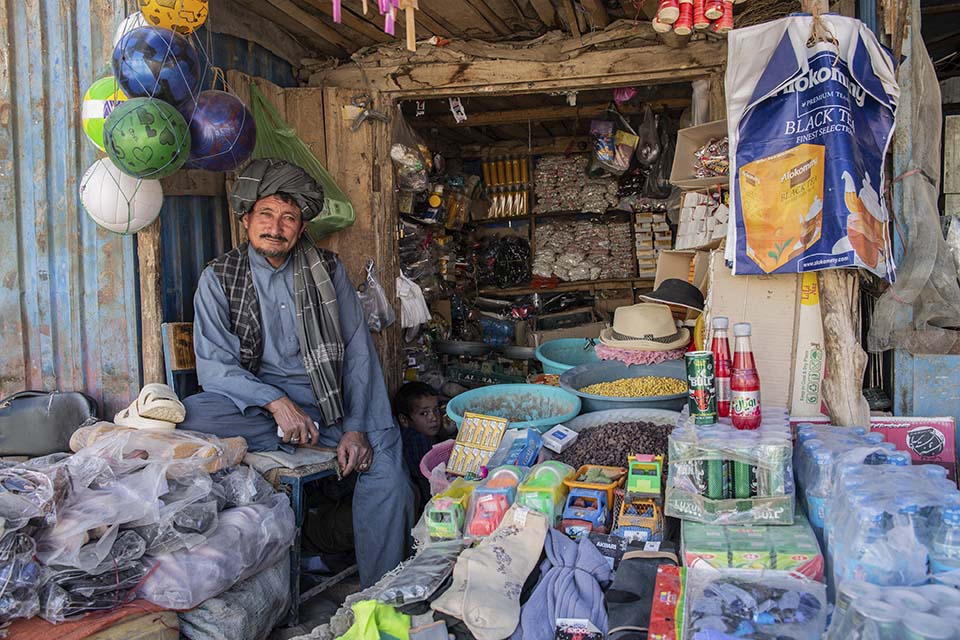
A shop owner in the main bazaar in Jawkalang. CRS has been working here to set up a community-based education center for the young residents of the village.
Photo by CRS/staff
Turkey and Syria
The impact of February’s 7.8 magnitude earthquake and its series of aftershocks continues to be felt. The death toll now surpasses 50,000. In Syria, an estimated 500,000 people have been displaced, many living in collective shelters, with relatives or friends, or in informal settlements with minimal services. Children’s education has been disrupted: Hundreds of schools are serving as shelters or are in need of rehabilitation, and schools that have re-opened have experienced low attendance. Families have reported lingering mental health issues among children and their caregivers. In Turkey, more than 2.7 million people are displaced.
In Syria, CRS’ contributions to Caritas Syria and other Church partners are supporting 6,000 families in collective shelters in Aleppo, Latakia and Hama with blankets, food, hygiene items, electricity and other supplies. CRS is also providing cash assistance and other support for at least 300 families in Tartous and for those displaced from areas closer to the earthquake’s epicenter. Psychological support and livelihood recovery are priorities among both displaced and host communities. In Turkey, CRS is working with another international partner to facilitate the return of displaced families as well as repair homes for an estimated 1,700 people.
Caritas Turkey continues to coordinate efforts with Church partners:
- Providing cash assistance for shelter repair and reconstruction to an additional 17,183 families.
- Caritas Anatolia has delivered 17,500 hot meals, including 240 to 300 per day for families in tents in Iskenderun, and 60 to 100 meals per day for people hosted in the Vicariate premises.
- Caritas Anatolia has provided 10,200 food kits , as well as hygiene items, clothing, shoes, blankets and heaters to 2,000 families, in addition to shelter assistance in Church facilities.
- For children, Caritas Anatolia has dedicated two tents and a portion of its center to educational support and counseling support while schools remain closed.
Pakistan
In June 2022, more than 33 million people were affected across 90 districts after catastrophic flooding devastated the country: 1,739 people lost their lives, 1.1 million livestock perished and 1.3 million houses were damaged.
With many people having returned to their villages, current needs include repair of damaged homes, restoration of infrastructure for water, sanitation and hygiene, and support for livestock and livelihoods. CRS has supported the following:
- Providing 18,559 families with cash assistance and water, sanitation and hygiene support.
- Distributing hygiene kits and supplies to an additional 2,838 families.
- Constructing 674 latrines serving 6,111 people.
- Repairing 1,940 hand pumps and other water sources to provide water for local families.
- Providing hygiene promotion sessions that reached 52,720 people.
- Providing cash assistance for shelter repair and reconstruction to an additional 17,183 families.
- Providing water, sanitation and hygiene infrastructure in schools, counseling support, teacher training, and a back-to-school campaign, altogether reaching 4,000 families through 13,000 children in 52 schools.
- Constructing safe homes, and sharing best practices with partners, government and peer organizations.
Yemen
More than 8 million children in Yemen need emergency education support, with at least 2 million out of school and suffering from acute malnutrition. This is in the larger context of a humanitarian crisis that has devastated families across Yemen as an eight-year war has been waged between Houthi rebels and forces loyal to the government, backed by a Saudi Arabia-led coalition. Eighty percent of the population is in urgent need of aid.
CRS is prioritizing efforts for health, employment, water and sanitation, and education. CRS has been supporting the training of young Yemenis—half of whom are women—to work in understaffed health facilities.
CRS also supports health facilities with improvements of infrastructure for water, sanitation, hygiene and waste. We are helping facilities to expand their mobile medical teams into hard-to-reach areas severely impacted by poverty and war.
And CRS will soon implement activities to ensure at least 3,000 children have access to education. It is a project that builds on our experience and learning elsewhere, particularly in Iraq, where CRS rebuilt schools and supported teachers and administrators in teaching methods, social-emotional learning and safeguarding. Efforts in Yemen will focus on rehabilitating damaged classrooms, restoring water and sanitation facilities, supporting parents and administrators, training teachers, and providing dynamic educational materials for students.
8 million children in Yemen need emergency education support, with at least 2 million out of school because of conflict, poverty and lack of educational opportunities.
EAST AFRICA
Egypt, Chad and Sudan
In mid-April in Sudan, major clashes between the Sudanese Armed Forces and the Rapid Support Forces have had devastating consequences for civilians. CRS is making every effort to maintain programming as the conflict continues. This includes the operation of 21 health facilities in Darfur. Already, more than 100,000 Sudanese have fled to neighboring countries, including Egypt and Chad. In Egypt, CRS is one of the few agencies that have been granted permission to respond and is planning to support those arriving in Aswan, as well as those being hosted by existing Sudanese communities in Cairo. In Chad, CRS is planning to support Caritas Mongo to meet the needs of refugees in the eastern region, including with food assistance, water, sanitation and hygiene, and protection.
Ethiopia
High levels of humanitarian need in Ethiopia persist. The country is experiencing one of its most severe droughts in 40 years and an estimated 17 million people need lifesaving assistance. The devastation to agricultural livelihoods and deepening food insecurity has led to not only increased malnutrition but also displacement. High rates of inflation make access to food extremely difficult for families already living in poverty.
Drought is predominantly affecting the southern regions largely reliant on livestock herding. Prolonged lack of access to water and pasture has resulted in massive livestock death, loss of access to milk and meat, loss of income, greater reliance on purchase of cereals, and widespread food insecurity. Conditions are deteriorating. Additionally, people require urgent water delivery and repairs to water supply systems. Those in displacement camps have received limited support, and many people are camping under any available shade without formal shelter. Cases of gender-based violence and early child marriage are reported to be on the rise.
CRS and our local partners are responding to the compounding crises by providing more than 8 million people with food and support. In the north, assistance includes food, shelter, water, sanitation and hygiene, health and nutrition, and social and emotional support. CRS is also providing families with seeds and cash for vegetable seeds. We continue to support displaced families with emergency shelter and cash for rent in the southern state of Oromia.
Somalia
More than 6.5 million people are in need, and half of all children are expected to be acutely malnourished this year. The crisis has led to massive displacement and heightened conflict with more than 1 million people displaced. Livestock are dying and diseases like cholera are on the rise.
CRS is paying special attention to displaced communities and malnourished children. We have supported more than 70,000 people with health care, nutrition services, cash assistance, and clean water and hygiene supplies. CRS is expanding our capacity in Somalia, conducting assessments, positioning for scaled-up action, and adding offices in critical areas and staff members in relevant sectors. We are also preparing to implement long-term efforts around livelihoods, health and building resilience.
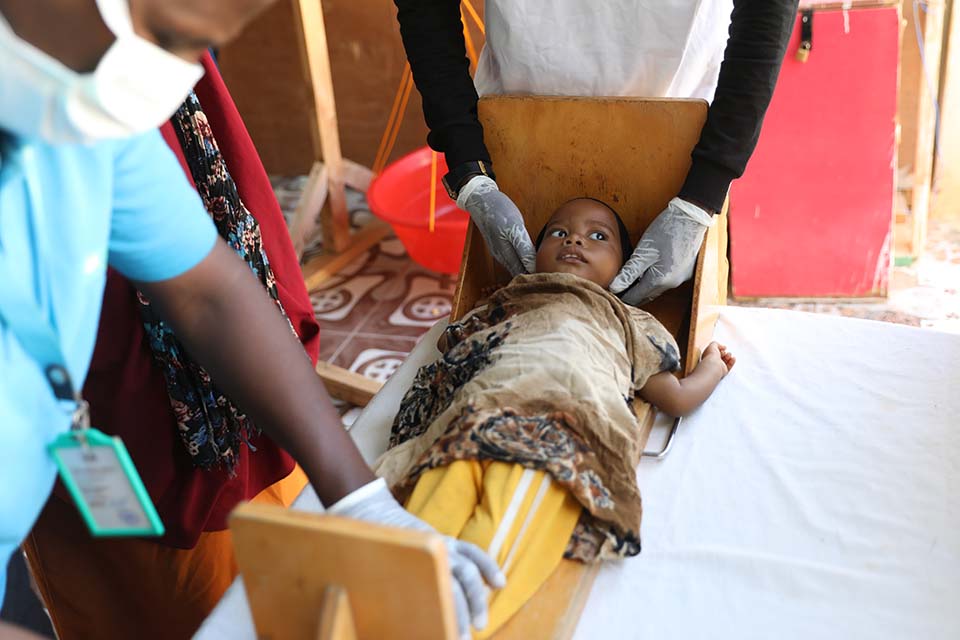
Photo by Omar Faruk for CRS
More than 6.5 million people are in need, and half of all children are expected to be acutely malnourished this year.
South Sudan
Malnutrition in South Sudan is a public health emergency. Seventy-five percent of the population needs humanitarian assistance. Some parts of the country are experiencing their third or fourth consecutive year of flooding. There is also a shortage of medicine and medical supplies. Cases of malaria and waterborne diseases have increased. Conflict and insecurity exacerbate these conditions and threaten lives and livelihoods. More than 2 million South Sudanese have fled and remain outside of the country.
CRS is ensuring continued access to health, nutrition, food and clean water in some of the most remote parts of the country. Working with our local partners, we are reaching 3.2 million people in Uror, Ayod and Twic East counties in Jonglei State. Working together, we are:
- Ensuring the most vulnerable people have access to lifesaving health and nutrition services through mobile medical units.
- Providing direct food assistance and cash assistance where markets are functional.
- Combining support for household food production and livelihood recovery by providing vegetable production, fishing kits and training.
- Distributing hygiene supplies and rehabilitating water systems.
Kenya
Kenya is experiencing its worst drought in decades, which has led to a collapse in crop production and livestock losses. Northern and Eastern Kenya have been particularly affected.
CRS is working in Marsabit, Isiolo and Turkana. In 2022, CRS reached 4,800 families in 18 malnutrition hotspots in Marsabit and Isiolo with cash assistance. We are also providing improved water, sanitation and hygiene access, and livestock and veterinary services to 6,500 families in Turkana County. Our efforts include rehabilitating seven strategic and multi-use water systems and ensuring access to livestock feed and emergency veterinary services.
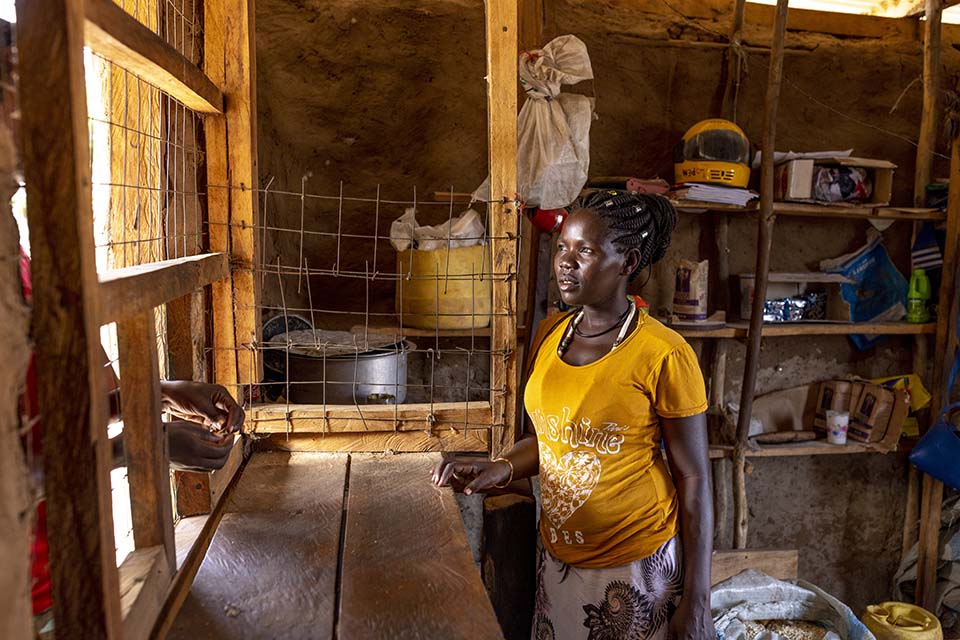
Photo by Patrick Meinhardt for CRS
WEST AFRICA
The Sahel
Sharply worsening conflict has caused mass displacement in the central Sahel. This, coupled with a new global hunger crisis, has created a humanitarian catastrophe in Mali, Burkina Faso and Niger. Almost 3 million people have fled violence, some multiple times and with little preparation. Most of those fleeing remain displaced within their country’s borders or have sought refuge in a neighboring country. Although neighboring communities have been welcoming and have shared their limited resources, overcrowding increases pressure on livelihoods and overall well-being.
CRS is carrying out an emergency response to save lives, reduce suffering, build resilience and support social cohesion and peacebuilding. Priority areas for assistance include:
- Safe shelter using the Safe Homes and Communities approach—recognizing the home as the entry point for providing comprehensive assistance.
- Cash and supplies to meet basic needs for food and living supplies.
- Livelihoods support, including income generation and climate-smart agriculture.
- Water, sanitation and hygiene.
- Psychological first aid and counseling support.
- Capacity and leadership support for local organizations acting as first responders.
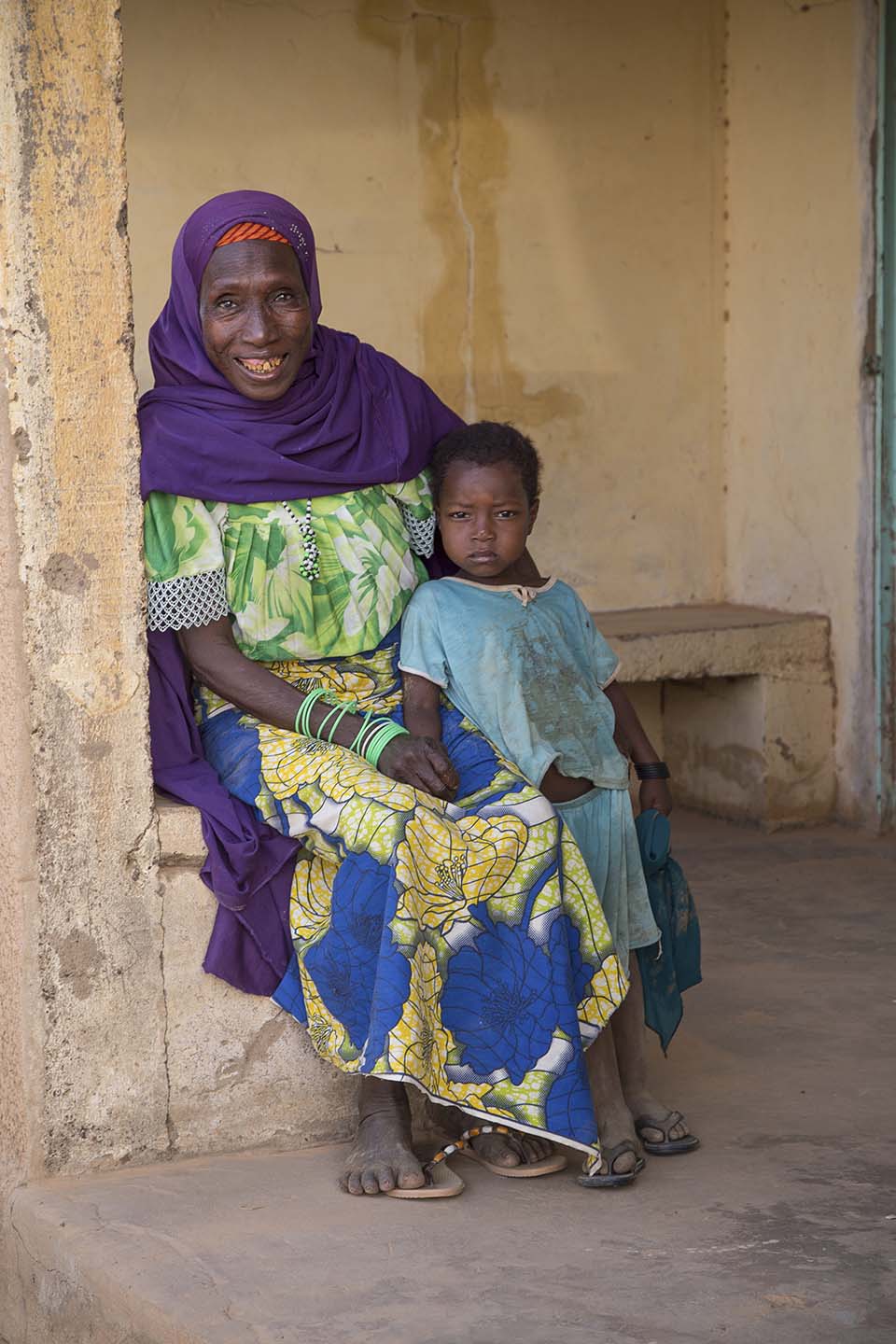
Photo by Dominique Guinot for CRS
Central Africa
Ghana, Benin, Togo, Guinea and Côte d’Ivoire
Ghana, Benin, Togo, Guinea and Côte d’Ivoire all share borders and are experiencing a humanitarian catastrophe as citizens face attacks, displacement and deepening food insecurity due to violent conflict. The central Sahel conflict—in Mali, Burkina Faso, and Niger—expanded south and east over 2021 and 2022. The coastal West Africa region is at risk for a dramatic increase of spillover. CRS estimates that 19,000 people are displaced. In 2022, CRS supported partners Caritas Côte d’Ivoire and a diocesan Caritas office in Ghana to provide 6,750 Burkinabé refugees and host community members with food and hygiene supplies. Additional food assistance and livelihoods support are taking place this year.
Central African Republic
In the Central African Republic, where agriculture is the primary source of household wealth for 75% of the population, farmers are dealing with depleted harvests and rising food prices. To cope with the loss in food and income, families have reported eating seeds and selling assets. CRS is providing emergency food and shelter support and is expanding plans to provide integrated interventions in crop and livestock agriculture, non-farm livelihoods, food security and market recovery with a focus on young people and women. CRS is analyzing the drivers of food insecurity in Bouar, Bossemtélé and Bozoum. Lessons learned from data collection will help address the causes of food insecurity in order to strengthen the local food system and build resilience.
In the Central African Republic, where agriculture is the primary source of household wealth for 75% of the population, farmers are dealing with depleted harvests and rising food prices.
SOUTHERN AFRICA
Mozambique, Madagascar and Malawi
On February 21, 2023, Tropical Cyclone Freddy made landfall on the eastern coast of Madagascar. The storm spent several days tracking over Mozambique and Zimbabwe, bringing heavy rains and flooding. On March 12, 2023, the storm landed in Southern Malawi. The most affected districts are Blantyre, Chikwawa, Chiradzulu, Mulanje, Mwanza, Neno, Nsanje, Thyolo and Phalombe.
Cyclone Freddy occurred at a time when the population of Malawi was trying to recover from the deadliest cholera outbreak in recorded history, leaving 4.8 million people in need of assistance. Cyclone Freddy is expected to be a vulnerability multiplier, destroying water, sanitation and hygiene infrastructure and increasing challenges in access to safe water and sanitation.
In Mozambique, some provinces received as much rain in 24 hours as they would usually experience in one month. The emergency separated children from their families and put many at risk of trafficking. Across both countries, houses have been destroyed, land and health facilities flooded, and water supply systems, schools and roads left in ruins.
CRS is providing comprehensive assistance, including:
- Water, sanitation and hygiene support for safe collection and storage of drinking water, as well as hygiene promotion and access to hygiene.
- Building materials to quickly construct temporary shelters and resources for existing emergency shelters.
- Household living supplies for displaced families.
- Food assistance.
In Madagascar, our efforts have prioritized disaster risk reduction given that the country has an average of three to four cyclones annually. Activities include:
- Farmers and community members building and expanding agroforestry techniques that can lessen the effects of wind and rain.
- Farmer cooperatives and tree nursery associations developing cyclone-resistant infrastructure to sustain and diversify livelihoods.
- Rebuilding and supporting crop-related production, infrastructure and systems to ensure livelihoods.
- Supporting communities and families to build and scale cyclone-resilient housing structures.
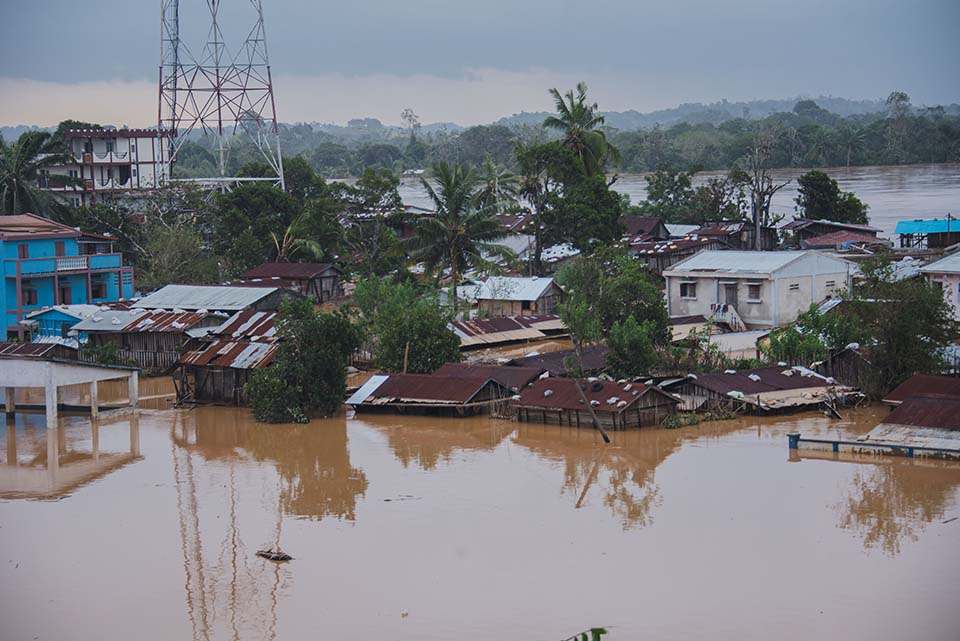
Aerial photos of the center of Vohipeno, Madagascar, after tropical storms flooded the area. CRS works with dioceses, the government and other partners to provide comprehensive assistance. Photo by Tofy Rabenandrasana for CRS
In Mozambique, some provinces received as much rain in 24 hours as they would usually experience in one month.
LATIN AMERICA AND THE CARIBBEAN
Honduras
Recently, Honduras witnessed an exponential increase in displacement and migratory flows—including internal displacement, people returning to their home communities, and people entering its southern border. Humanitarian actors, led mainly by local Church organizations, have established shelters, but their limited capacities are overwhelmed. The city of Danlí is currently the epicenter of the crisis, registering 73% of migrants entering the country. A majority of arrivals are from Venezuela, Haiti and Colombia. Their priority needs include shelter, food, water, protection services and transportation to cities where safe accommodation might be available.
The Catholic Church in Honduras has a long history of promoting the safety and dignity of migrants. Parishes, dioceses and religious orders have networks of shelters and spaces. CRS supports Caritas to provide 2,500 migrants with safe accommodation, food, water, sanitation and hygiene, information about rights and services, and accompaniment for the most vulnerable cases. Transportation between migrant concentration points and the Caritas shelter is provided for access to services. CRS support for this comprehensive Caritas effort complements existing services in Danlí, while helping to cover gaps in key needs reported by migrants and authorities. In Choluteca, with support from CRS and the United Nations High Commissioner for Refugees, Caritas Honduras has established the Monseñor Guido migrant center that currently hosts around 100 migrants per day.
CRS supports Caritas to provide 2,500 migrants with safe accommodation.
Venezuela and the Surrounding Region
Thousands of children are malnourished as 90% of Venezuela’s population live below the poverty line. More than
5.6 million Venezuelans have sought assistance in other countries. Nutrition, health assistance, safe shelter and cash assistance remain top priorities for CRS and Caritas partners as we provide support to meet both immediate and longer-term needs. CRS support takes place across Venezuela and the region—including in Brazil, Colombia, Peru, Panama, Ecuador, Chile, and Trinidad and Tobago. The range of efforts include the following:- Evaluation of nutritional status of 52,357 children under age 5, and 10,596 women who are pregnant or new mothers.
- Medical treatment for 112,088 people at Caritas Venezuela centers.
- Supplies and equipment for hospitals.
- Cash assistance and vouchers that, since August, reached 1,460 families, in a total amount of $319,000.
- Food assistance—including 201,494 hot meals—reaching 8,995 people in Brazil.
- Safe shelter for refugees and those in transit—including collective shelter assistance for 1,770 people in Ecuador.
- Counseling support and legal assistance for refugees and those in transit.
- Livelihoods projects to help people without sources of income.
- Implementation of an awareness-raising campaign to tackle discrimination across communities, schools and media.
- Support for 11 savings-led microfinance groups in Ecuador.
- Ongoing technical support to Caritas partners across the region.
Mexico and Guatemala
In Mexico, a humanitarian crisis is on the rise as people arrive seeking safe refuge from nearby countries reeling from insecurity, failed harvests and chronic poverty. People are crossing Guatemala and are seeking humanitarian visas, shelter, asylum or transit permits to reach the U.S. border. Many have limited food, water, safe shelter or accurate information.
CRS is working with our Catholic partners to help displaced people find the resources to stay in their countries of origin, or to access relief and safety. In Mexico and Guatemala, networks of 26 migrant shelters are responding to the massive influx. While shelters are limited in capacity, they offer migrants a place to sleep, bathe, eat and receive medical care. Services include:
- Providing hot meals, safe shelter, hygiene and living supplies, legal assistance, health care and counseling.
- Providing emergency relief.
CRS supports our partners by:
- Strengthening capacity for operations, human resources, finance, administration, logistics, governance and technical programming.
- Providing training and technical guidance, and best practices for developing policies and procedures.
- Collaborating on efforts across the region that create opportunities for people to live safely and with livelihood options in their home countries, preventing the need to migrate.
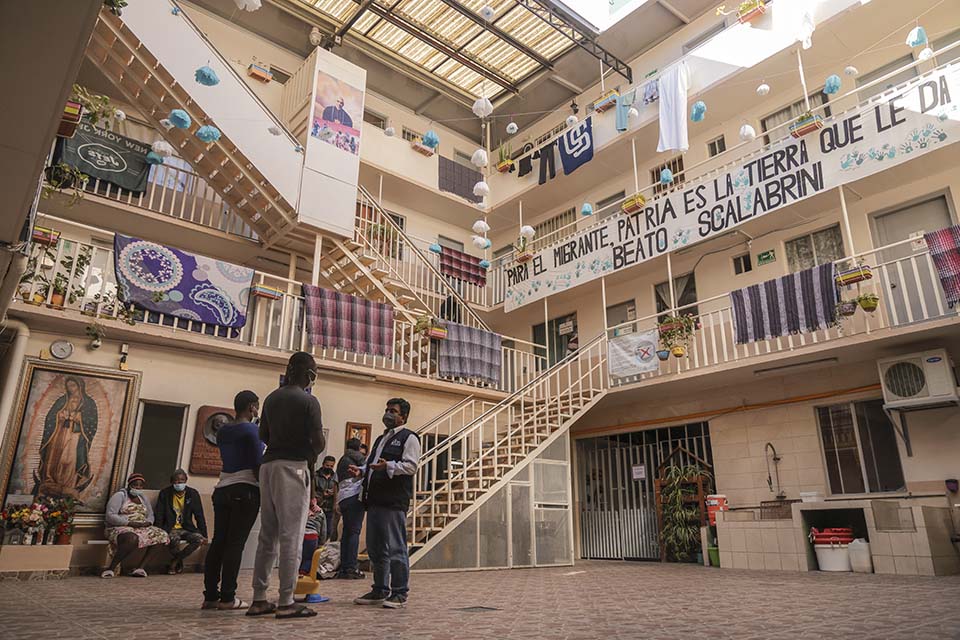
Inside Centro Escalabrini, Casa del Migrante de Tijuana, one of the oldest shelters in the city specialized in receiving migrant families. CRS supports efforts by local partners to provide safe shelter, hygiene supplies, food, legal assistance and counseling support to migrants during their stay. Photo by Oscar Leiva/ Silverlight for CRS
ASIA
Timor-Leste
In Timor-Leste, compounding issues in recent years have led 300,000 people—or 22% of the country’s population—to experience heightened levels of food insecurity. Lingering impacts of severe flooding in 2021 and 2022, combined with the COVID-19 pandemic and reduced purchasing power due to ripple effects of the Russia-Ukraine conflict, have resulted in higher prices, lower food production and increased overall vulnerability. Local food production is only able to meet 40% of domestic demand, while the remaining 60% is met by imports from neighboring countries. CRS’ strong relationships with local community leaders allow us to carry out emergency efforts, including cash and voucher assistance, livelihoods support, coordination for food assistance and social cohesion.
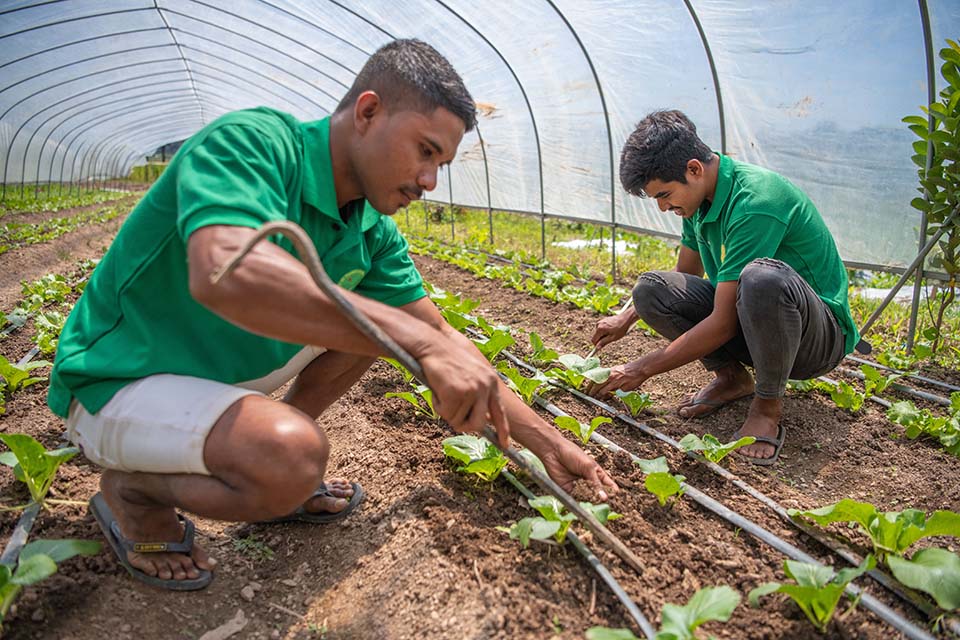
Adelio dos Santos Maia, left, and Cipriano dos Santos, right, practice agricultural skills in CRS-supported projects in Timor-Leste. Photo by Holly Powers for CRS
Bangladesh
“I could not sleep, could not even eat during rainy season. I can remember one day we were eating and all of a sudden it started raining and we couldn’t even eat as there were so many holes and a broken roof. Water started to come directly onto our plates.”
Cox’s Bazar District is home to the world’s largest refugee camp, which is now considered a protracted crisis. More than half of the 950,000 Rohingya refugees in Bangladesh are children. Many refugees have experienced extreme violence while trying to survive in overcrowded settlements. Women and girls are most at risk. The area is also prone to natural disasters like cyclones, and hilly terrain makes it especially susceptible to flooding and landslides.
Since 2017, CRS and our partners have supported 265,000 Rohingya and host community members. We incorporate disaster risk reduction, protection and counseling support into program activities. Comprehensive assistance, in coordination with Caritas Bangladesh, includes:
- Quality shelter interventions—immediate, transitional and longer term.
- Provision of key shelter materials either through direct distribution or cash assistance.
- Increased disaster risk reduction, demonstrations on “building back safer” shelters, and sharing of strategies to protect the environment
- Training, resources and guidance for families to improve their living conditions.
- Access to hygiene and living supplies.
- Cash-for-work activities to support access roads and maintenance of community disaster shelters.
- Efforts to strengthen social cohesion among conflicting communities.
- Support for safe spaces and activities for children and women.
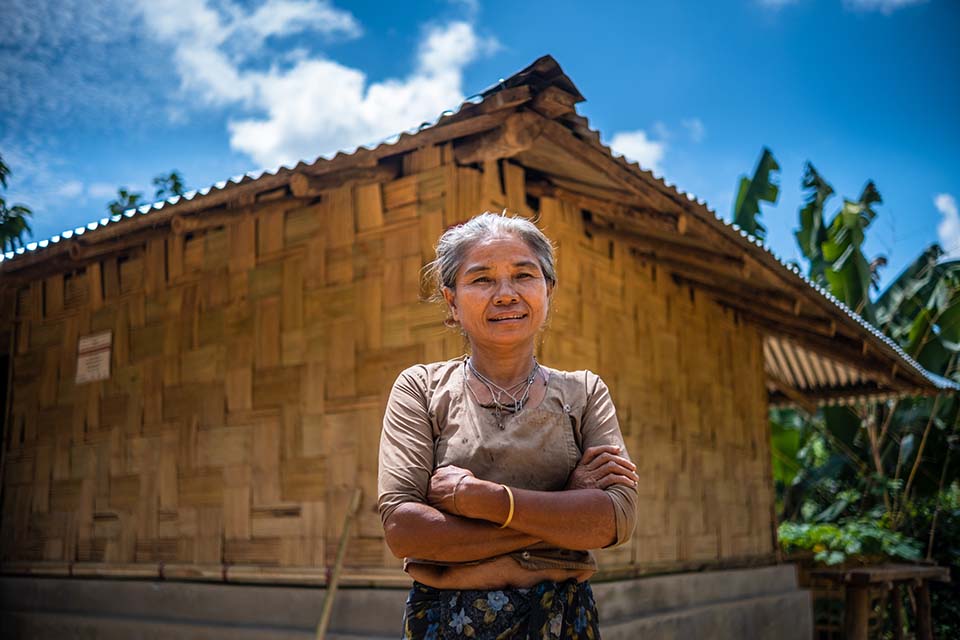
Kraima received cash assistance in a program supported by CRS and Caritas Bangladesh to reconstruct her house after cyclical storms started to erode the roof and walls. Photo by Amit Rudro
Thank you for supporting CRS. Here are some highlights of what we accomplished together in the past year.
Download & Print Global Emergency Update English Global Emergency Update
Recent Global Emergency Updates
February 2024
Ukraine War: Two Years of Emergency Relief and Recovery—In February of 2022, Russia invaded Ukraine, causing massive destruction and loss, separating families and uprooting millions of people from their homes. Over the past two years, Catholic Relief Services has worked with Caritas and other partners across Ukraine and the region to provide a range of support to meet people’s urgent needs for food, shelter, living supplies, medical care and counseling.
January 2024
Emergency Response in the Holy Land—Catholic Relief Services and our partners are responding to immediate needs of families facing hunger and displacement in the Holy Land.

